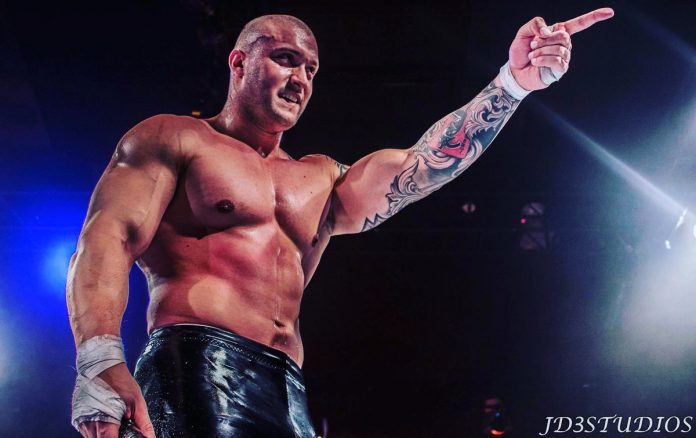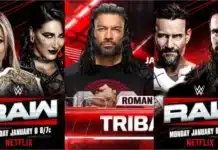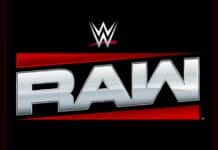
After Impact Wrestling’s April pay-per-view event, I penned an article that discussed the reasons why it was the most well-produced and probably best event held under the Anthem banner. With all the well-documented turmoil the company had that spanned over different eras and different regimes, the post-Rebellion PPV buzz around the organization was the most positive news the group had in several years. It finally appeared that the group had a solid direction to progress forward, and that may still be the case for the property of The Fight Network.
However, some disappointing details surfaced recently about the Impact pay scale, which might shed some light on where the league stands in the crowded professional wrestling landscape. Recently, reports were posted online that Killer Kross, one of the featured grapplers for the current product, had requested his release from the promotion because his compensation for working there simply wasn’t enough to provide a living wage. The 33-year-old athlete got a later start than most in the sport, debuting in 2014, but had a combat sports background before he began a career in sports entertainment. He garnered some notoriety for a stint in Mexico in AAA before he had a run in Lucha Underground and his debut for Impact last year. He returned to Mexico earlier this year, but isn’t working a full-time schedule there. When he surfaced on Impact television last June, he was booked as the “mystery attacker,” which was a lame introduction, but since that time, he proved himself as a compelling persona with solid in-ring skills.
When the story about his request for a release was posted online, it was said that $45,000 a year was offered to him as a raise from the previous amount. As a comparison, it was also reported that the $45,000 he was offered was less than most standard NXT contracts. Keep in mind, all this must be taken with a grain of salt because it’s doubtful that those that published the initial story actually saw the paychecks of those particular talents. Still, the most important aspect that was eventually confirmed by Kross in an interview on the Wrestling Prospective podcast is that he isn’t earning enough to make a living from Impact Wrestling. While a “living wage” can be subjective, there are still some general figures of what those who wrestle full-time are paid when under contract to a national organization. During the previously mentioned Wrestling Perspective podcast, Kross explained his situation in probably the most professional way possible, considering the personal nature of a financial deal that wasn’t meant to be public. Kross emphasized that his initial request to renegotiate his contract was based of his family obligations, which is certainly understandable. It was also interesting to hear that he was lead to believe that a certain amount of money couldn’t be offered to wrestlers signed to the company prior to this, but it was actually offered to others on the roster. Basically, it sounds like he was mislead about the amount of money the organization was willing to pay wrestlers under contract. He also explained that the contract he asked for was only to be comparable to others at his level on the roster.
Don’t get me wrong, I understand that professional wrestlers are independent contractors and there are individual negotiations, but there are still general guidelines for specific promotions. For example, the highest paid regular on Raw will make more than the highest paid regular on Impact simply because of the scale of each company. The same way you’d assume that a talent under contract to a national company would make more there than on the independent scene. Considering that Impact has a roster of similar talent in terms of their TV experience and star power, it doesn’t sound unreasonable that Kross requested to make similar money to others at his level. Granted, does that mean he will make as much money as Rob Van Dam? Probably not, but again, his explanation on the podcast didn’t sound unreasonable. That being said, Impact management is within their right to decide if they want to release a talent or not. Kross knew the terms of the deal when he signed it and even if his personal situation changed, that doesn’t automatically mean that Impact is somehow obligated to pay him more, which is probably the reason he requested his release so that he could seek better financial opportunities elsewhere.
To be clear, Impact Wrestling doesn’t “owe” Killer Kross anything other than the money for his current contract. As unfair as it might seem, it’s within their right to keep him under that deal if they choose until it expires. At the same time, the optics of the situation don’t present the company in a favorable light, and it might be an indication of a more complex problem. Kross mentioned that the answer he was told when he expressed his financial struggles to management was to “get a second job” to supplement his income. This isn’t a good look for the organization because how exactly is Kross supposed to be perceived as a star if he has to work at an office or stock shelves to afford to continue to wrestle for Impact? Kross cited another disappointing example when he said that Scarlett Bordeaux, who appears regularly for Impact, actually does have to work a second job outside of wrestling and still lives with her family to cover expenses.
In many ways, perception is reality and the perception appears to be that Impact Wrestling can’t afford to pay some of its roster enough to be full-time wrestlers, which doesn’t speak well for the promotion, especially when there are more options for talent now than in almost two decades. There’s also the harsh reality of business in this scenario, in terms of Impact’s ability to generate revenue, specifically after the TV show moved to the Pursuit channel at the beginning of the year. Sure, the show is also broadcasts on Twitch, but the online broadcast usually averages about 10,000 viewers while the Pursuit Channel airing garners roughly 12,000 when those numbers are reported so there’s not really any major ad revenue to be made from the Impact TV show right now. Aside from ticket sales and possibly some merchandise, how exactly does the organization generate revenue?
At a time when TV rights fees and distribution are emphasized in pro wrestling, Impact doesn’t have either of those right now. As far as business goes, the goal for Anthem Sports is to make a profit and it’s possible that the only way to minimize the risks of losing money is to keep payroll lower. Make no mistake about it, if Anthem would lose money continuously with the Impact project then it would probably shut down the promotion so maybe the economics of Impact is what allows it to continue to run events. But, there’s also an evolving wrestling landscape and unless Impact can find a solid audience to keep pace with WWE, AEW, New Japan, MLW etc. they might simply get squeezed out of the market. Don Callis and Scott D’Amore deserve a lot of credit for their ability to rescue the promotion from the brink of collapse, but the outside factors of the industry might prevent Impact from finding a profitable niche. As for Killer Kross, he had a tremendous bout against Davey Boy Smith Jr. at the Blood Sport show Wrestlemania weekend so even if he continues to work for Impact until his contract expires, he would be a solid addition to another company.
What do you think? Comment below with your thoughts, opinions, feedback and anything else that was raised.
Until next week
-Jim LaMotta
E mail [email protected] | You can follow me on Twitter @jimlamotta







